In this article
View 8 More +If you’re looking for a small dog with a big presence, look no further than the Silky Terrier. These little dogs are energetic and intelligent but require much of your attention and time. Part of the Toy Group, the Silky Terrier has plenty of spunk and adds zest to the life of an attentive dog owner with time to devote to them. Let’s dive deeper into the characteristics and traits of these little yet energetic dogs.
Breed Overview
Height:
9–10 inches
Weight:
8–10 pounds
Lifespan:
13–15 years
Colors:
Blue, silver, tan, sable, grey, black, brindle
Suitable for:
Active families, families with no other pets, families with older children, attentive owners
Temperament:
Energetic, high-spirited, feisty, intelligent, alert, quick, affectionate, inquisitive
The Silky Terrier is a true terrier breed with high spirits. They are slightly bigger than their close cousin, the Yorkshire Terrier. These little dogs are native to Sydney, Australia and are the result of crossing the Yorkshire Terrier with the Australian Terrier in the early 19th century. It’s not fully known what other breeds were involved in breeding these little dogs, but it’s speculated that the Skye Terrier, the Cairn Terrier, and the Dandy Dinmont Terrier all played a role in the breed’s development.
The Silky Terrier is often described as feisty but not yappy, small but not fragile, and pretty but not sculpted. They are inquisitive and enjoy life to the fullest. The American Kennel Club (AKC) recognized the breed in 1959.
Silky Terrier Characteristics

Silky Terrier Puppies
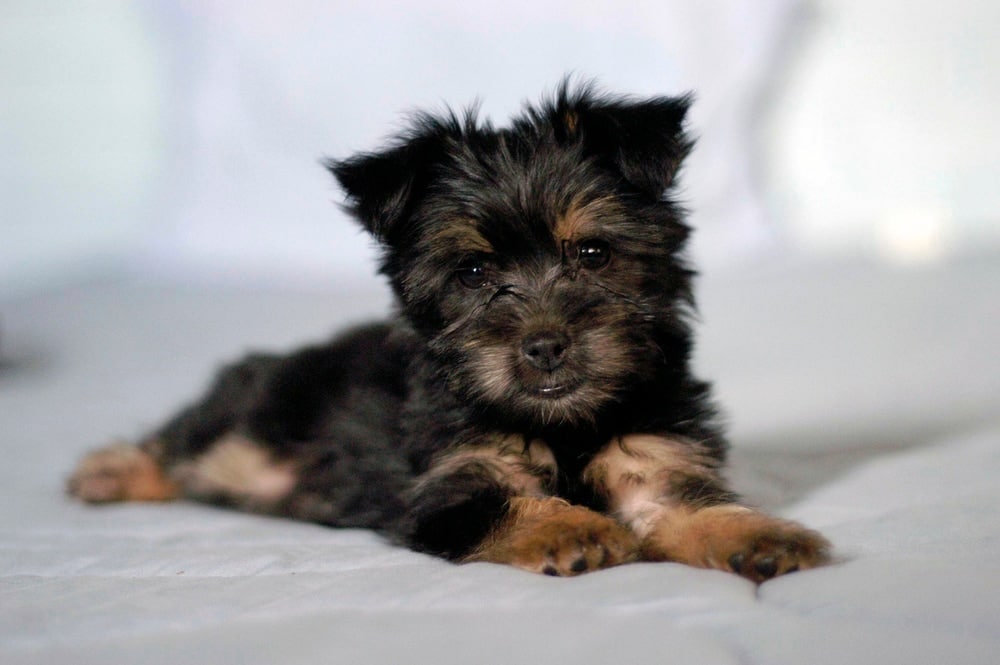
Silky Terrier puppies are born feisty, and that feistiness never leaves as they mature into adults. This breed loves life and has plenty of energy. An important characteristic to note is that they bark—a lot. They are highly protective of their families and will bark at anything they’re unsure of. That said, despite their small size, they are not well-suited for apartment life, and their barking may not bode well with neighbors.
You won’t have much trouble finding a Silky Terrier breeder, as there are many in the United States. You can also check your local animal shelters and rescues. Despite being purebred, dogs from all walks of life can end up in shelters for various reasons, and you may get lucky and find one that needs a loving home. If you do choose a breeder, ensure the breeder is reputable and knows anything and everything about the breed and the breed standards.

Temperament & Intelligence of the Silky Terrier
As you can probably tell by now, the Silky Terrier is friendly, playful, intelligent, high-spirited, and alert. They bond strongly with family members and demand your undivided attention constantly. They get bored easily and will show their displeasure by barking or getting into mischief. They require a family who is present most of the time and who can give them the attention they crave.
These little dogs thrive on human interaction and require much exercise. However, they will snuggle up with you for a nap once they are tired. They are a bit weary of strangers but will settle down once they learn the stranger is of no threat.
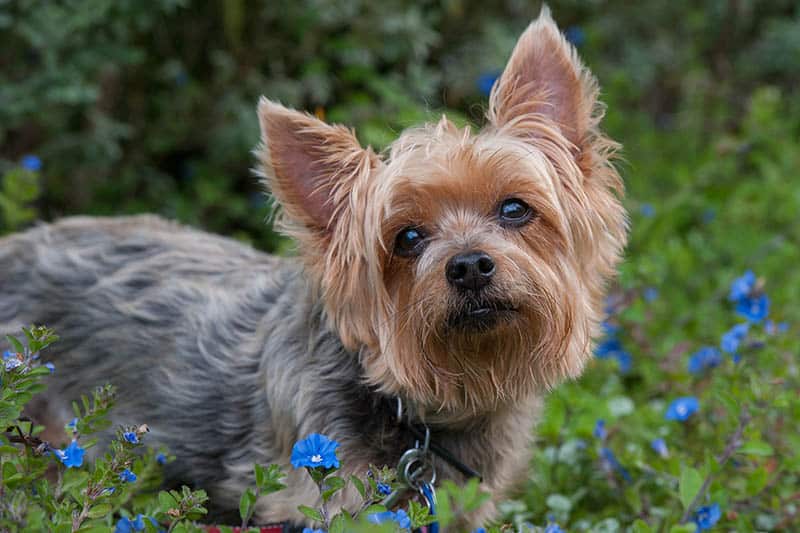
Are These Dogs Good for Families? 👪
These spunky little dogs make excellent companions for active families. They are affectionate and do well with a multi-member household, as exercise duties can be distributed throughout the family to ensure the Silky Terriers’ needs are being met. They can invest in unpleasant habits, such as barking, digging, and chewing, if they are not exercised or left alone for long periods. Nonetheless, these little dogs are loyal, loving, and always up for an adventure.
They do well with older children but not so much with toddlers. Even though they are affectionate, they sometimes need their space, and a young child will not realize this until the Silky Terrier barks or, worse, snaps or nips. Older children will understand how to play with the Silky Terrier respectively and will know when the pooch is not in the mood for play. Still, supervision is recommended when children, regardless of age, play with this breed.
Does This Breed Get Along With Other Pets? 🐶 😽
Silky Terriers establish themselves as the dominant ones on the hierarchy list and do best as the only pet. They can be aggressive with other dogs without a care about their small size. They also have a strong prey drive, which makes them a threat to cats and other small pets in the home.

Things to Know When Owning a Silky Terrier
Food & Diet Requirements 🦴
Given their small size, they do best on high-quality dog food formulated for toy or small breeds that is age appropriate. How much you feed daily will depend on your particular pup’s energy levels (which will likely be high!), but as a general rule, they do well with ½ cup to 1 cup daily divided into two meals, morning and evening. The food should be complete and balanced with high-quality protein, vitamins, and minerals. It’s also recommended to ensure the dog food is approved by AAFCO to ensure the quality.

Exercise 🐕
It’s certainly no secret that these little pups require much exercise. Exercise can be in the form of daily walks, a game of fetch, or playing with interactive games and puzzles. You should set aside at least 1 to 2 hours per day for exercise to keep the Silky Terrier fit. If this is not possible, we highly recommend reconsidering this breed.
The Silky Terrier also excels in flyball, agility, and other dog sports, which is fun for the whole family. Having a secured, fenced yard is also beneficial for a quick play session throughout the day. However, they are prone to digging, so you’ll want to keep a watchful eye on your pooch while playing in the yard.
When out for a walk, the Silky Terrier may show aggression toward other dogs passing by if not properly socialized, so be prepared to buy a harness that fits perfectly—not too snug and not too loose. You don’t want your pooch to slip out and take off, which they’ll do, especially if they see a rabbit, squirrel, or similar animal.
Training 🎾
These dogs are intelligent and capable of being taught basic commands due to their eagerness to please. However, they can be a bit stubborn during training sessions if they’re not in the mood. Use positive reinforcement during training, and it’s best to start training as early as possible.
Grooming ✂️
The coat of a Silky Terrier is glossy, long, and silky (hence the name) and has the feel of human-like hair. Their grooming needs are moderate, and their hair is prone to matting if not brushed every day or at least every other day, depending on the length. You can use a pin brush or soft-bristled brush to work out mats and tangles.
Plan on bathing the Silky Terrier every 4 to 6 weeks with a quality shampoo. You’ll also need to trim the hair as needed due to their low-shedding coat. These dogs require extensive grooming, and you may consider taking your Silky Terrier to a professional groomer if you’re not comfortable with the grooming requirements, which also involve nail trimming and brushing the teeth to keep up with dental hygiene.
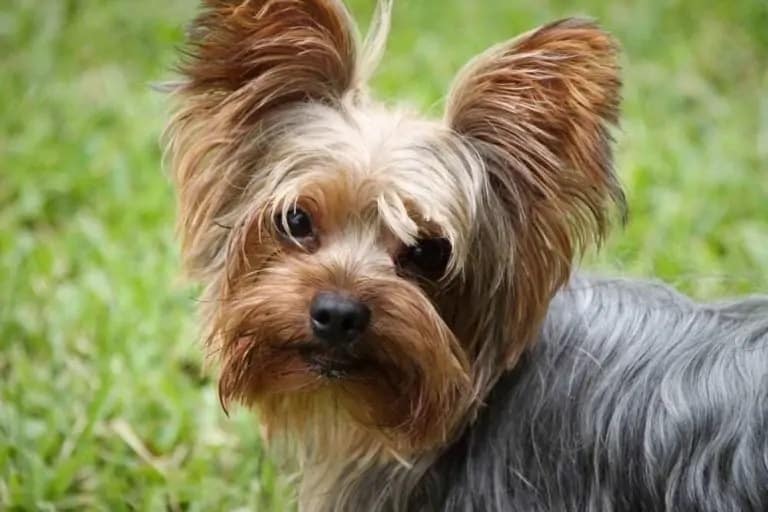
Health and Conditions 🏥
The Silky Terrier is a healthy, robust breed, but there are a few health conditions to which this breed may be prone due to their ancestry. Your Silky Terrier may never develop any of these conditions, but it’s good to know, just in case your Silky Terrier falls ill.
- Patellar luxation
- Cataracts
- Cushing’s disease
- Dental disease
- Legg-Calve-Perthes disease
- Tracheal collapse
- Diabetes
- Epilepsy
Male vs. Female
There’s not much difference between a male and female Silky Terrier in terms of height and weight. The temperament is relatively the same too; however, males may have a higher prey drive. Males may also be more aggressive with smaller children who don’t respect their space.

3 Little-Known Facts About the Silky Terrier
1. They Make Excellent Farm Dogs and Hunters
Despite being bred mainly for companionship, they have proved worthy of hunting vermin on farms, including snakes and rodents. Their energy, quickness, and small size enable them to hunt efficiently, which explains their high prey drive.
2. Their Name Is Complicated
The Silky Terrier wasn’t always called as such, as they have had their fair share of name changes over the years. They were originally named the Sydney Silky Terrier in honor of their native origin in Australia. Today, their name is different depending on where you live. For example, in Australia and the rest of the world, they are known as the Australian Silky Terrier. In the United States, the AKC dubbed them simply the Silky Terrier.
3. They Are Considered Hypoallergenic
While there are no true hypoallergenic dog breeds, some don’t shed too much, and the Silky Terrier is one of them. Dander is a common allergy trigger, and given these dogs shed minimally due to no undercoat, dander isn’t too much of an issue. If you’re an allergy sufferer, the Silky Terrier is an excellent option.
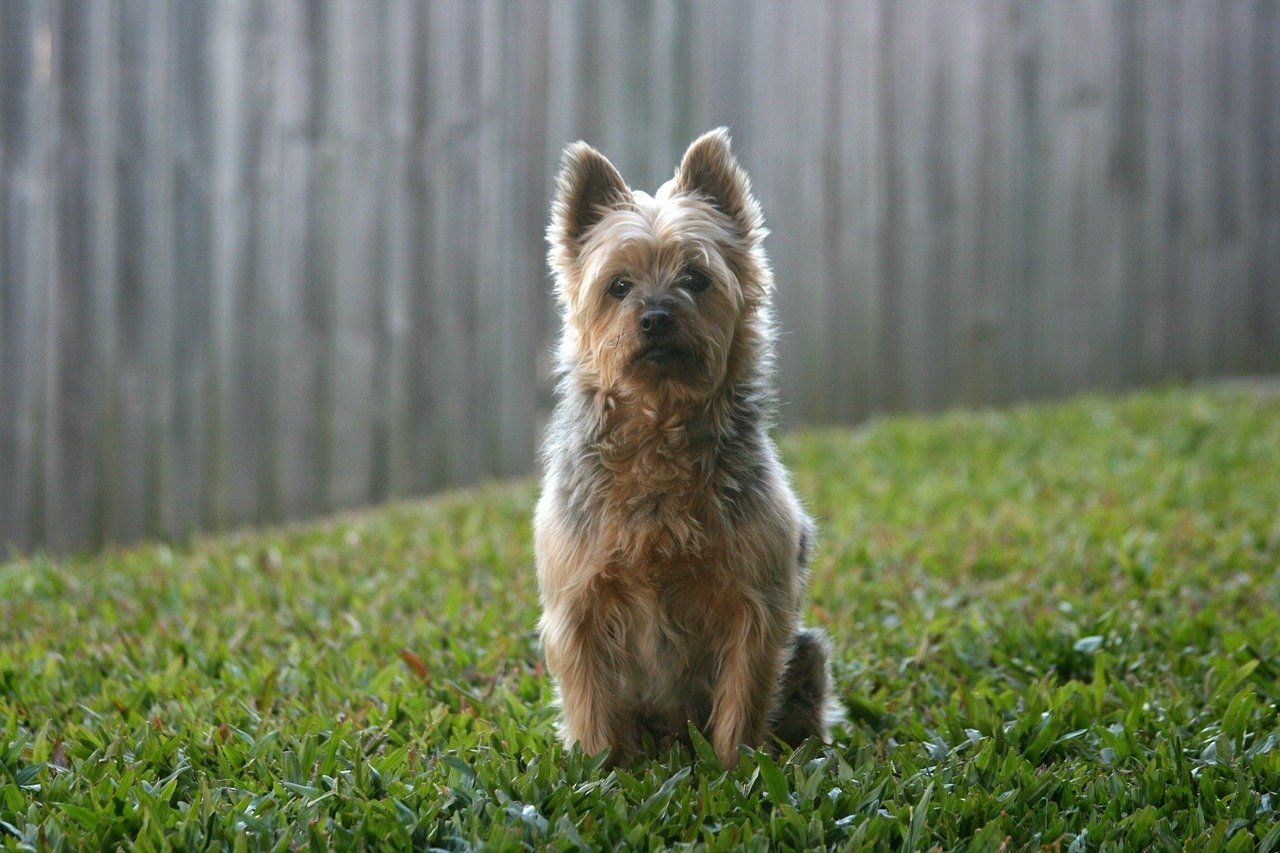

Final Thoughts
The Silky Terrier is energetic, high-spirited, alert, inquisitive, intelligent, and feisty. They require attentive owners who can give them their undivided attention daily, and they do best being the only pet in the home. They are adorable little dogs who make excellent companions as long as you devote time to them. Teaching basic commands and providing plenty of exercise will keep these little dogs well-rounded, healthy, and happy. For added fun, enroll the Silky Terrier in agility courses or flyball events so they can show off their athleticism; plus, this will burn off all of that excessive energy.
Featured Image Credit: Radomir Rezny, Shutterstock
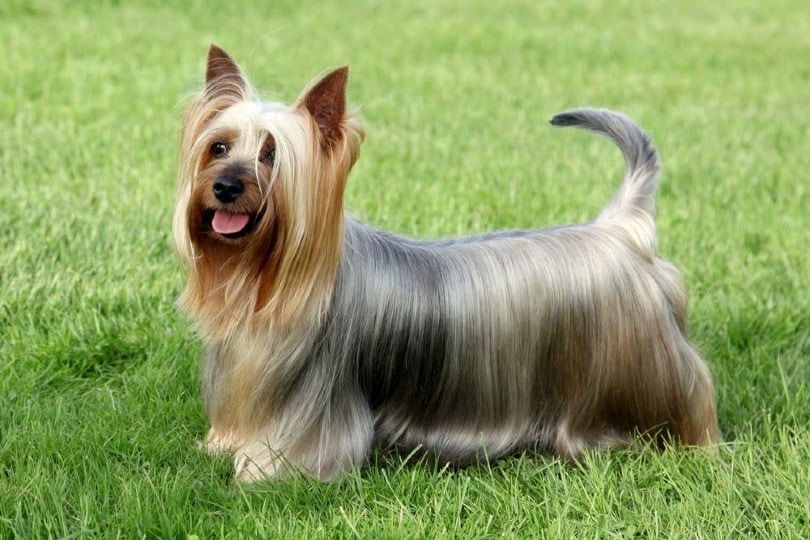


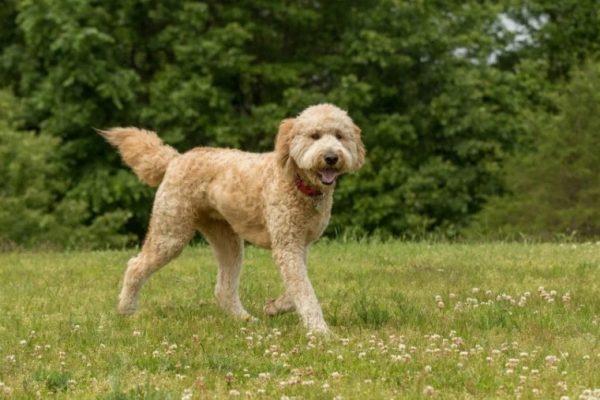

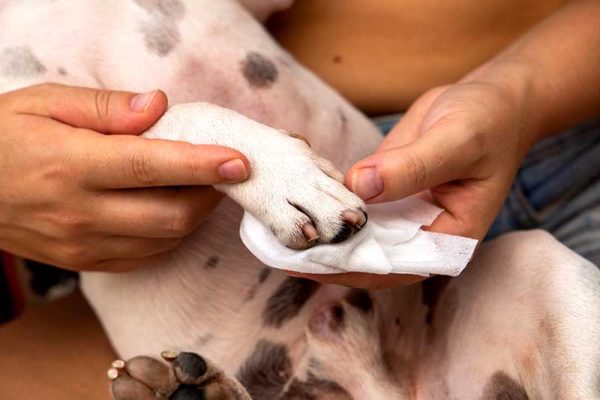
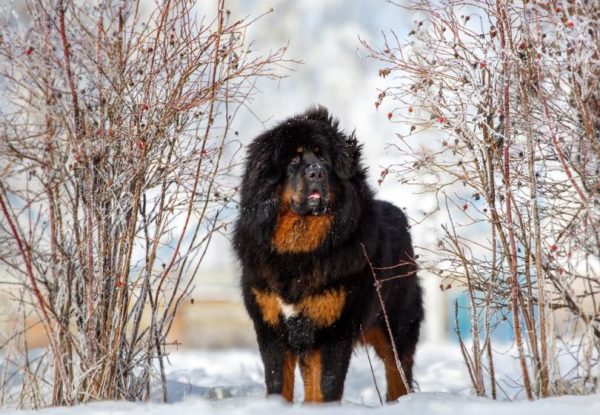
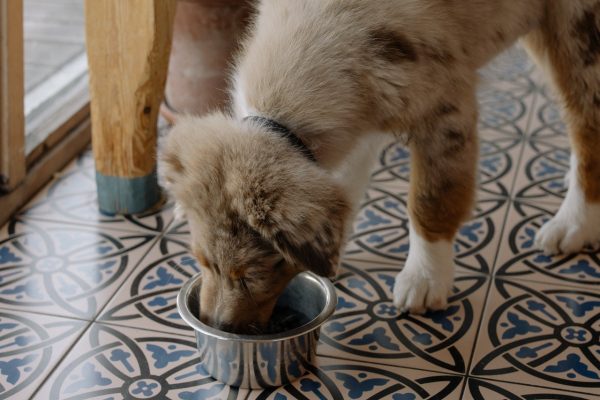

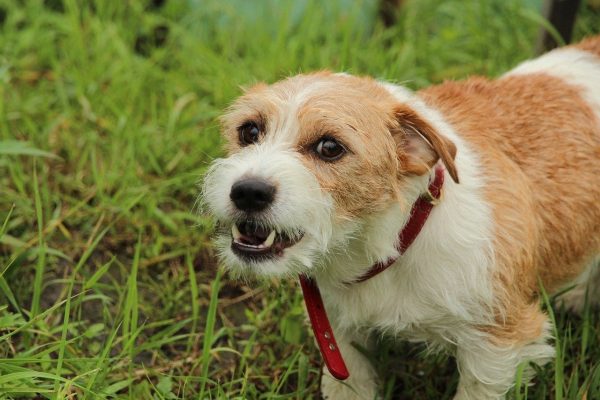



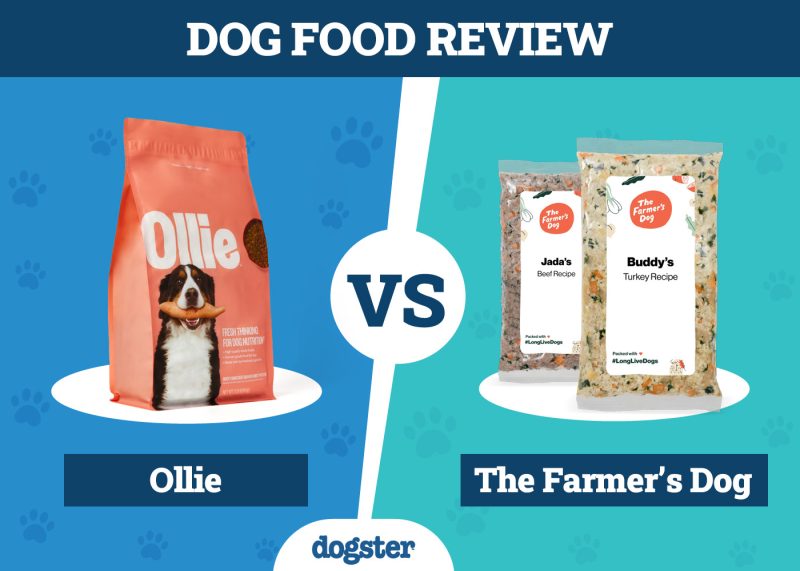


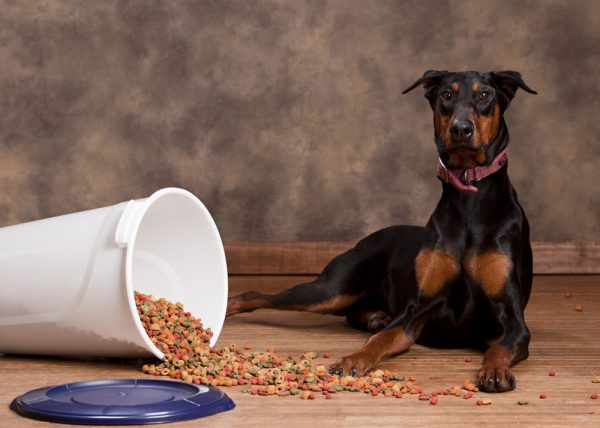


2 Responses
Muchas gracias por toda esta información. Fue de mucha ayuda y muy interesante.
Margarita y Rex!
Hola Margarita y Rex!
¡Qué bueno saber que la información te fue útil! Nos alegra mucho que hayas disfrutado aprendiendo sobre los Silky Terriers.
Son perritos encantadores, y es genial ver tanto interés en conocerlos mejor.
Que vayan súper bien!